Hip Hop music was born some four decades ago, and through the years the genre has grown with a variety of offspring, as well as influence on mainstream culture. To many the golden age of Hip Hop took place during the 1990’s and coming onto the mainstream scene in 1992 was the Atlanta, Georgia based group known as Arrested Development. One of the pioneering faces of Alternative style Hip Hop music, Arrested Development’s 1992 debut album, 3 Years, 5 Months & 2 Days in the Life Of…, went quadruple platinum.Standing strong all these years later, while mainstream Hip Hop has changed in their homeland of the USA, Arrested Development still hold potency abroad in Japan and European nations. Recently we sat down with group founder Speech for an in-depth look at the history of Arrested Development, the progression of their music, plans for the future, issues in the real world, and more.
CrypticRock.com – You began Arrested Development almost three decades ago and during the early 1990’s the group achieved massive commercial success. Take us back. What was it like for yourself and the group when Arrested Development broke into the mainstream in a big way like they did?
Speech – It was amazing. I’ll tell you a few reasons why. One is, I’m from a small town near Milwaukee, Wisconsin and I did not know anybody that made it at that time period in the industry. That was number one. Number two; we were a very organic and non-contrived Hip Hop group and so for us to have the type of commercial success we decided to recognize its very amazing for us, we could not believe it. Third, lastly, we were young and so at age nineteen and twenty and the youngest person included was sixteen at the time. It was just very overwhelming. Just the responsibility of things, the new found respect and admiration, and busy schedules. It was just a very overwhelming time, but not in a negative way, per se, it was just overwhelming.
CrypticRock.com – Without a doubt, especially being so young. Now that debut record in 1992, 3 Years, 5 Months, & 2 Days in the Life of… was a tremendous step in a different direction for Hip Hop at the time. That record came out in a time when Gangsta Rap was dominating charts. Was it important to you to offer an alternative to that form of Hip Hop with a most positive style with thought provoking lyrics?
Speech – It was the purpose of the group. You know, I’m from Milwaukee as I stated, and Milwaukee is very high in crime, very high in racial separation, racist policies, and real hardship for the black community. Seeing the despair, the frustration that I saw on a daily basis, made me want to respond to Gangsta Rap with solution. Because, when gangsta rap first was started, I understood its point. Because the point was, we got to let the world know that the Police were harassing us. So “F the Police” by N.W.A.. was a critical song and others like Ice-T which would come out with music like “6 in the Mornin” which talked about the harsh realities of gang life in L.A., and the Cripps and Bloods killing one another. Nobody in the rest of the nation had seen that type of violence; that was the type of stuff reserved for Iran or somewhere in the Middle East to us as Americans. When you heard that in Gangsta Rap it provided a service to the rest of the world to say look at what’s goin’ on here in Compton, look at what’s goin’ on here in L.A. Then it started to morph into glorifying those same things to where it was no longer letting people know this is what’s happenin’, it was more so wallowing in it, and death and glorification of being able to blow the next guys brains out became the norm and that was added to the person’s credibility. Arrested Development purposely wanted to make music that didn’t glorify death, we wanted to glorify life. We wanted to glorify the fact that yes, there is poverty, there is oppression, there is hardship, but there is also hope and there is possibility. We wanted to bring about solutions and talk about the problems but also offer some solutions.
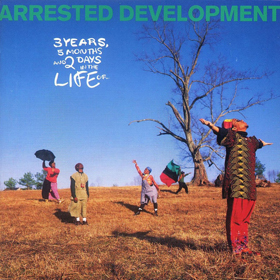
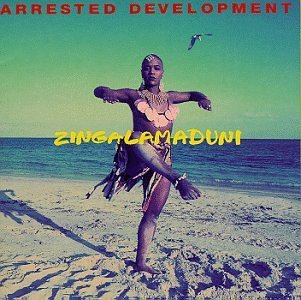
CrypticRock.com – Absolutely, the group did a great job of that. That record still stands strong all these years later and really helped redefine the term Alternative Hip Hop. You stuck with the issues, but you emphasized hope. You followed up with two more extremely successful releases with Arrested Development before diving into a solo career that you have released seven studio records. What inspired you to go solo and then what inspired you to revisit Arrested Development some years later?
Speech – The solo career was an accident. When Arrested Development had internal problems and broke up; we decided we’re not going back in the studio. Being a musician and a creative guy that I am, I continued to write. I wasn’t expecting to do a solo record but the president of EMI at the time, he heard some of the demos, I didn’t even shop them to him, but he had heard them and he said, “Let me hear ‘em. Let me listen to them,” and he liked them. He asked me if I wanted to do a solo deal and I did it. It didn’t do well at all in the United States but thank God it did extremely well in Japan. The same record that really didn’t sell any copies here in the States was seven weeks at number one on the Japanese billboard charts. I started to tour a lot there and started to release more albums to the fans that really loved what I was doing. That solo material was a lot more singing; it was sort of comparable to what Lauryn Hill would end up doing later. She wasn’t out yet, but it was probably the first time a Hip Hop artist started to really delve into singing, soulful melodies and stuff like that.

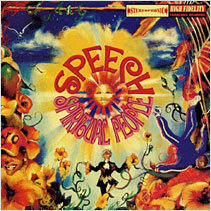
CrypticRock.com – Absolutely. Now you have kept the solo career going, releasing many albums, but you also have kept Arrested Development going as well.
Speech – Yes, when the year 2000 came,I released a solo album called Spiritual People, that became my biggest solo album, it went gold in Japan, and really did big numbers. That time period was perfect because I was at the height of my solo career and Eshe, the dancer for Arrested Development, said, “Speech, we should do another AP record.” We got together as a group and decided to do that and piggy back off of the success of my solo career in Japan. We released that first album in 2002 in Japan only called Heroes of The Harvest and that was a great move for us; it did extremely well. We started releasing music in Japan and it all just tied into what my solo career had done.


CrypticRock.com – Right, as you mentioned the great success in Japan, that is quite great that occurred. With each release in the 2000s the groups sound has seen a broad range of experimentation and growth. How would you describe the evolution of the groups sound?
Speech – It was very experimental. Japan is the type of audience that’s very loyal. During the time that we were coming out with new music, they allowed us to experiment and still stay with us. You know how sometimes, if you experiment too much, your fans can lose you or you can lose them? With Japan, it didn’t happen that way. We were allowed to try different things and we did and a lot of it I’m very proud of, some of it I think back and think wow, that was really crazy, but it was a moment in time, and I’m glad we did it. It did allow us to experiment. That’s one of the things I love about the overseas music scenes; they’re a lot more forgiving and also dedicated.
CrypticRock.com – Totally agreed .European and Asian cultures are much more loyal to music. It seems that many of the Hip Hop acts from the 1980’s and 1990’s, such as Arrested Development, have been forgotten by mainstream American culture and record companies, when in fact they should be embraced. What do you attribute this blatant disrespect to the pioneers of the genre to in the USA?
Speech – I attribute it to the consolidation of all the radio stations and media outlets in the United States. What I mean by that is, when huge companies like a Clear Channel started to buy a lot of television stations and radio stations, and there’s only about three or four of these companies that own most of these stations here; that pretty much made the decision making of what was gonna be played in the United States, on TV, what was going to be covered in magazines, what was going to be aired on radio. Those decisions were made by fewer and fewer people and I think that it made sense for them to promote music that was more materialistic and more frivolous. I think that unfortunately in mainstream music right now; that’s where we’re at and we’ve been there for quite a while. I mean in my opinion we’ve been there for about twenty years now. We’ve been at that same spot where pretty much the songs you’re going to hear are going to talk about the same things; you know having a good time at a club or what I just bought and how much money is on my body, meaning my teeth or my neck. It’s really interesting too because when you juxtapose the music that’s come out over the last twenty years with the world events that have happened in the last twenty years; they don’t coincide at all. Some of the world events that have happened are some of the most serious things that have happened to us ever, yet the music is devoid of any of those messages; I just think it’s interesting.

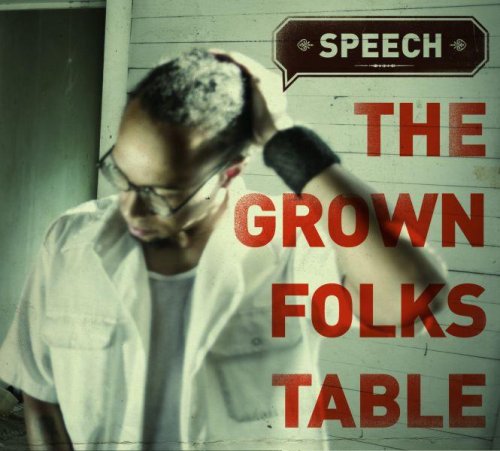
CrypticRock.com – Completely agreed, very good point. Mainstream Hip Hop has certainly changed over the years. It seems a lot of the in-depth lyrical content seen during the 1980’s and 1990’s era has dissipated. Do you feel like mainstream Hip Hop has lost the true meaning and message of the art form?
Speech – Yes I think that it has been lost to a very new generation. I think there’s a way to correct it though and that’s a good thing. I was recently in Columbus, Ohio, where we did a conference for high school students. I was training them on Hip Hop and teaching them about the origins of it from the Bronx, DJ Kool Herc and Afrika Bambaataa. They were so enlightened, as well as interested, because they feel like they’ve been robbed of knowledge of what in the heck they are listening to and what was the origins of this music. I spoke at SXSW in Austin, Texas and one of the things I spoke about was how sampling saved the music industry and I dipped into the history of Hip Hop music. I think that the young generation is interested, they want to know and I think a lot of artists, like myself, are the ones who are going be able them to get the roots again.
CrypticRock.com – That is great that you are doing that. It really is very important to understand the history of the genre to truly respect it and its depth. You have essentially stayed independent of major record labels for over fifteen years and decided to go about releasing music more independently. Do you find there to be more creative freedom that way?
Speech – Without a doubt; and I think it’s also, it’s forced me to understand the industry in a deeper way. Ultimately I am very happy about it. I mean, there are struggles with being an independent artist, but I’ve also had to struggle with getting the rights back to our initial hits, I’ve not gotten those rights back, and it’s been over twenty five years. It’s a very tough struggle to be on a label too because they own the material for so long that even once you’re finished your relationship, and even if both the group and the label made out well, they still own it for far too long.I find myself being like Prince where I’m railing against how long they’ve been able to exploit the music, and wanting the rights for the music back after all of these years. I’m really grateful to have the indie route where artists can be their own guide.
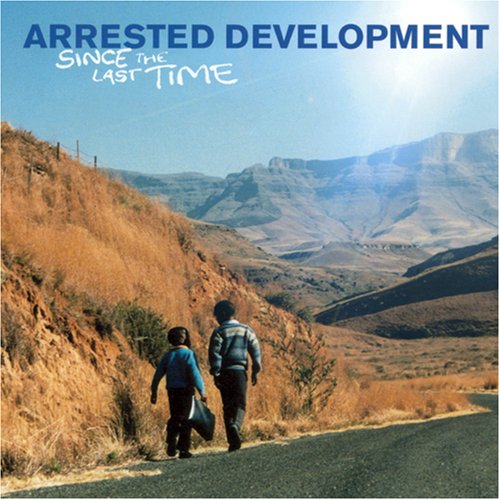

CrypticRock.com – Exactly. A lot of artists have gone the independent route lately. They have proven it does work. You do not necessarily need a label behind you to be successful.
Speech – I agree. I’m working in the tech business now as well as doing music. One of the things I’m working on is to find a safe haven for artists, and a lot of people that I talk to are working on this as well. We want to make a safe haven for artists, indie artists in particular, to be able to release their music, get it out to way more people than what they are able to do by themselves without anybody taking ownership of the material. So we’re working on that as well in the tech world.
CrypticRock.com – That is excellent and should be a great aid to developing artists. In 2012 Arrested Development released their tenth overall studio album titled Standing At The Crossroads. This record was released for free via the group’s site. What made you decide to do so and can fans expect new Arrested Development material soon?
Speech – Yes! I’m working on new material right now. We may release a copy probably in September. The reason we did Standing at The Crossroads as a free album is we wanted to sample again and we got into that heavily. We didn’t have enough money really to pay for all the huge fees of the sampling that it would cost, not compared to the amount of copies that we needed to sell; so we decided not to go that route. Arrested Development and I are out to try and change the sampling laws so that we can do that more often, but even the album we’ll release in September will be free. We’re gonna start releasing free music and we’ll monetize from it. We have ways in the tech world that can happen, but it will be free for our fans.
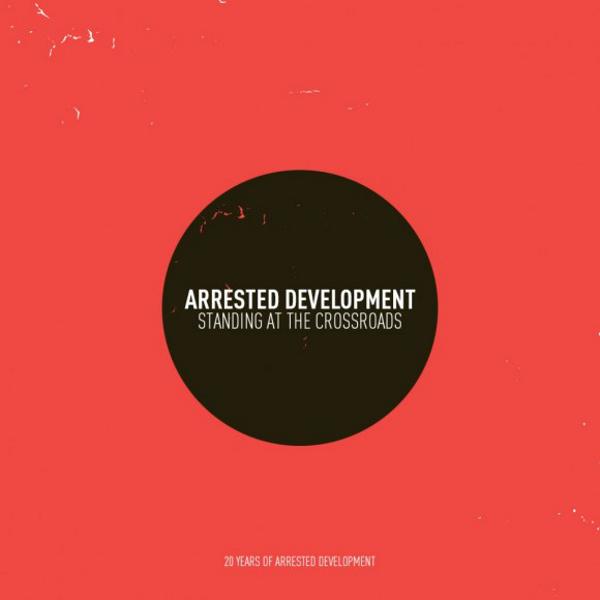
CrypticRock.com – That is great that you are releasing new material and making it so accessible to fans.
Speech – Yeah, we’re excited about it, we really are. It’s really great material too, very potent, and feels very happy. It’s funny because it’s a mixture between quite heavy subject matter, but it feels very light and fun.
CrypticRock.com – It will be exciting to hear. As you mentioned earlier there has been a lot going on in the last twenty years. You look in most recent times with race relations in the United States. It sometimes appears the mainstream media shy away from having an open and honest conversation about race relations. What do you think about that?
Speech – I agree with you. I think that, unfortunately, the nation is so divided that some media that is having some conversation, the people that would need to hear that conversation, will not hear it. Then the other media that’s not having that conversations, just do not wanting to talk about race, and they feel that the only reason there’s a problem with race is because people keep bringing it up. In my opinion, there are two divided fundamental viewpoints. The nation feels very divided when it comes to race. There is sort of a black reality and there’s sort of a white one. I always applaud blacks when they try and understand other people’s realities and whites when they try to understand people’s realities other than their own. I applaud people when they do that, I think it’s important for us as human beings. Unfortunately, I think most of the country is extremely divided and sort of taking sides. They just want to stick to their own realities and I think it’s sad.
CrypticRock.com – Very well said. It is important to stay positive through it all though. We should move past this as a nation and we will be stronger because of it. On a whole, most people in the country are compassionate toward one another and color blind toward each other’s background.
Speech – I don’t want anyone to be color blind, I just want them to be aware that there is colors, but not to allow that to make them prejudiced about anything. That to me is my dream for the world, is that to understand that there are differences. Those differences are what makes the world incredible.
CrypticRock.com – Absolutely. Our differences are what makes us unique. It should not be something to divide us, it should be something we embrace and appreciate different cultures. My last question for you is pertaining to movies. CrypticRock.com covers music and Horror films. If you are a fan of Horror films, what are some of your favorite Horror films?
Speech – I’m not a fan, but The Sixth Sense that was probably my favorite joint back in the day . That was probably the last one that I just really enjoyed. I try and stay away from Horror films, I don’t think they’re wrong or anything, they just get in me. They are not entertainment for me after a while, because then I start thinking about all this stuff (laughs). It’s funny, because I’m often in the studio by myself until 1, 2 or 3 AM in morning, so if I watch Horror movies I don’t know if I’ll ever get any work done (laughs). I really like Sci-fi stuff, anything that has to do with time travel I love. Movies such as Twelve Monkeys (1995) and Terminator series. Anything that has something to do with the future and the past.
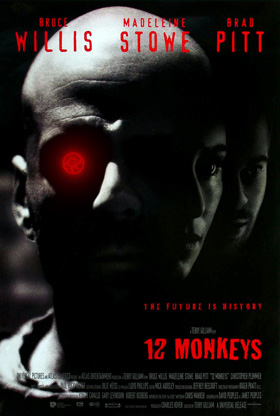
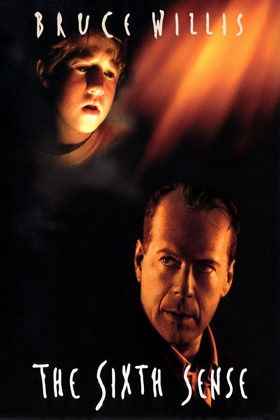

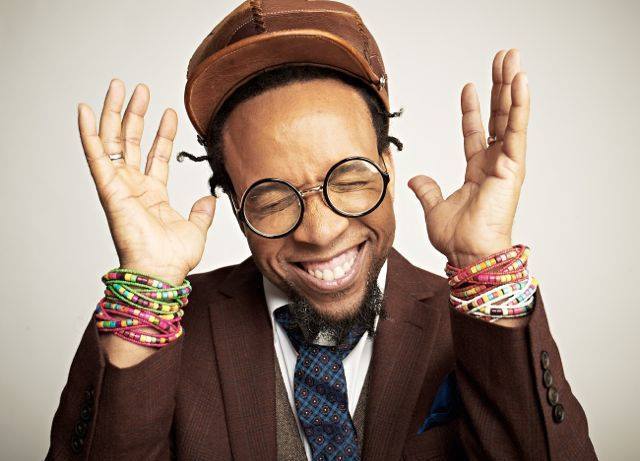

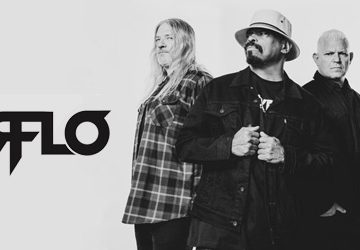


No comment